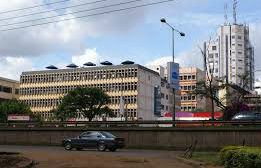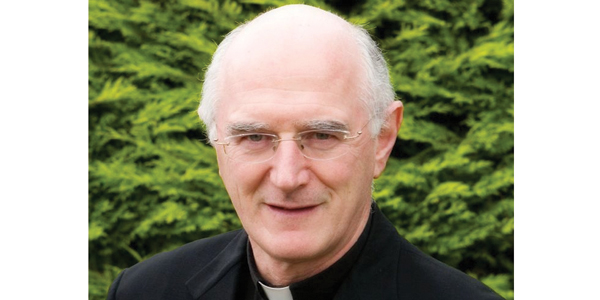Missing bishop found drowned
The Catholic Bishop of Bafia in Cameroon was found drowned in a river last week. Bishop Jean-Marie Benoît Balla, 58, was declared missing on 31 May by Archbishop Samuel Kleda of Douala, president of the Cameroon Bishops’ Conference, and his body found three days later by Malian fishermen. A search was mounted after the bishop’s car was spotted near the River Sanaga, and a handwritten message found in the car said, ‘‘Do not look for me! I am in the water.” Archbishop Kleda and Archbishop Jean Mbarga of Yaoundé were on the banks of the river during the search.
Despite the apparent suicide note, some newspapers and social media are suggesting that Bishop Balla may have been murdered. There have been a number of unsolved deaths of Catholic clergy in Cameroon. Bishop Balla was appointed to Bafia in 2003, a diocese with 200,000 Catholics. A priest who once worked closely with him described him as a “a solid, strong, balanced, restrained and clear-headed man”.
The Bishops’ Conference of Mali has rejected information published by the French daily newspaper Le Monde claiming that Catholic bishops in Mali – including one recently named by Pope Francis to become a cardinal – have placed €12 million (£10.5 million) in Swiss bank accounts. According to a Le Monde article of 31 May, Archbishop Jean Zerbo of Bamako – a 73-year-old due to receive his red hat from Pope Francis later this month - was instrumental in setting up several accounts in Swiss banks beginning in 2002. At the time, he was handling financial affairs for the bishops’ conference. The conference has rejected suggestions of any financial wrongdoing, saying, “everything decided by the conference is done transparently and regularly evaluated”. Le Monde alleges that the accounts were established quietly, in private meetings between Swiss bankers and Church leaders, including Archbishop Zerbo.
Rivera to step down
Mexican Cardinal Norberto Rivera (above) has announced his intention to resign after turning 75 on 6 June. The Vatican will now decide when his resignation will come into effect. He is currently facing charges of covering up child sex abuse in the Church, and failing to report priests who were allegedly involved to the Mexican authorities.
Rivera was named cardinal by Pope John Paul II in 1998. Following Pope Francis’ visit to Mexico in February 2016, Cardinal Rivera and his archdiocese defended their record against the Pope’s criticism of Mexican bishops. In Mexico City Francis told the bishops that they had lost their way in “gossip” and “intrigue,” and challenged them to “begin anew” and tend to their flock.
On 2 June at the Federal Attorney General’s office in Mexico City, former priests Alberto Athié and José Barba presented a legal case against Cardinal Rivera accusing him of failing to report 15 cases of clerical sexual abuse.
The president of the Korean Bishops’ Conference travelled to Rome to speak to the Vatican Secretary of State, Cardinal Pietro Parolin, and briefly to Pope Francis, to propose that the Holy See play an active role in reconciliation in the Korean peninsula. He was acting as a special envoy for the newly elected president of South Korea, President Moon Jae-in. Bishops’ conference president Archbishop Hyginus Kim Hee-jong of Gwangju, said, “I was sent by the president to ask the Holy Father for his support in the reconciliation process between North and South Korea, and I hope the Vatican can act as a mediator”. He met Cardinal Parolin on 23 May, on the eve of the visit of US President Donald Trump, and Pope Francis on 26 May.
A Catholic archbishop who was killed with a lethal injection from a KGB nurse after 16 years in Soviet prison camps is to become the first beatified communist-era martyr in Lithuania. Up to 300,000 people and bishops from across Europe are expected to attend the 25 June beatification of Archbishop Teofilius Matulionis who died in 1962.
Early counting of the 4 June vote for governor of Mexico’s most populous state gave a slight advantage to the candidate of President Enrique Peña Nieto’s ruling party, in a race seen as a key test ahead of next year’s presidential election. The preliminary results indicated Alfredo del Mazo of the PRI, was likely to win between 32.75 per cent and 33.59 per cent of the ballots in the State of Mexico, compared with 30.73 per cent to 31.53 per cent for his closest rival, Delfina Gomez (above) of the leftist Morena party. The National Front for the Family, a coalition of religious pro-life groups, launched a website to inform voters of their options in the vote. The website “Saber Votar”– Know to Vote – ranked candidates on their positions on issues including gay marriage and abortion. Mr del Mazo had the most favourable ratings on the website.
Russia’s President Vladimir Putin has attended the consecration of a new church in Moscow commemorating Christian victims of the 1917 Bolshevik revolution. The service on 25 May was celebrated by Patriarch Kirill of Moscow and other bishops of the Russian Orthodox Church. President Putin said, “our country and statehood are impossible to imagine without the Russian Orthodox Church’s spiritual and historical experience”, adding that he was sure the new church, “will help to strengthen deeper in our society the ideas of goodness, mutual respect, and reconciliation”. The huge church is located on the grounds of the fourteenth-century Sretensky Monastery in Moscow, near to the historic KGB headquarters on Lubyanka Square. It was built on the initiative of Bishop Tikhon of Egorievsk, the abbot of the monastery, whose book Everyday Saints is a best-seller.
Protests at cattle ban
The Indian Government has banned the sale of cattle for slaughter across the country, leading to protests by Christians and other minorities saying it is a violation of human rights.
The leader of the state of Kerala, which has a large Christian population, criticised the move as a “clear attack on our plurality”. Pinarayi Vijayan, the state’s chief minister, tweeted that the law would rob hundreds of thousands of people of jobs, cripple the leather industry and affect the diets of millions of people.
Compiled by James Roberts
08 June 2017, The Tablet
Missing bishop found drowned
News Briefing
 Loading ...
Loading ...
Get Instant Access
Subscribe to The Tablet for just £7.99
Subscribe today to take advantage of our introductory offers and enjoy 30 days' access for just £7.99



